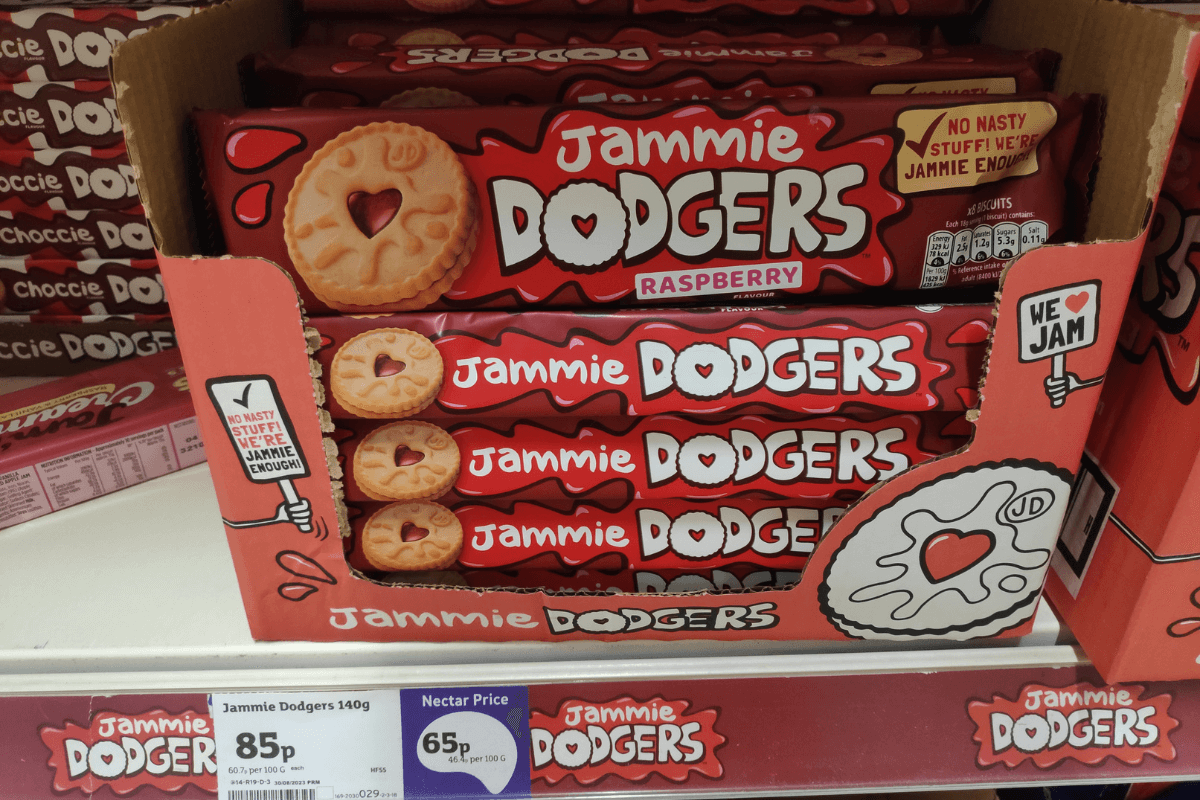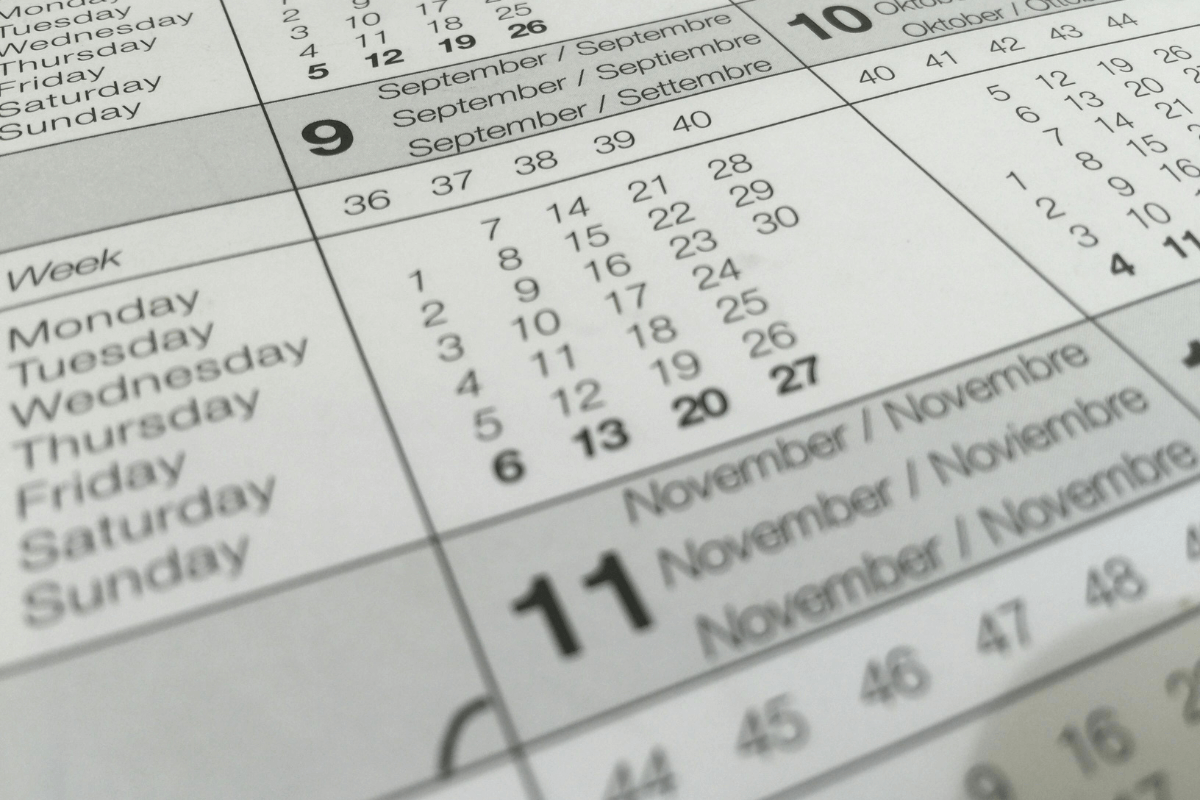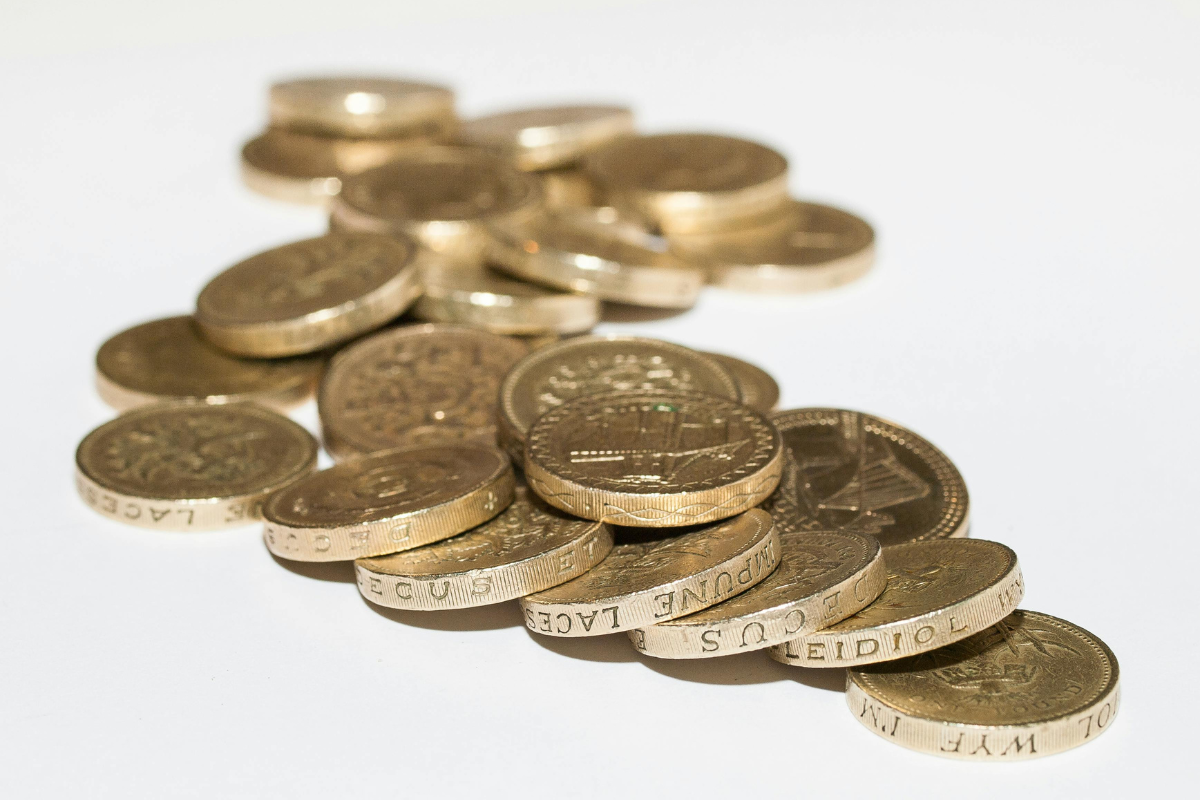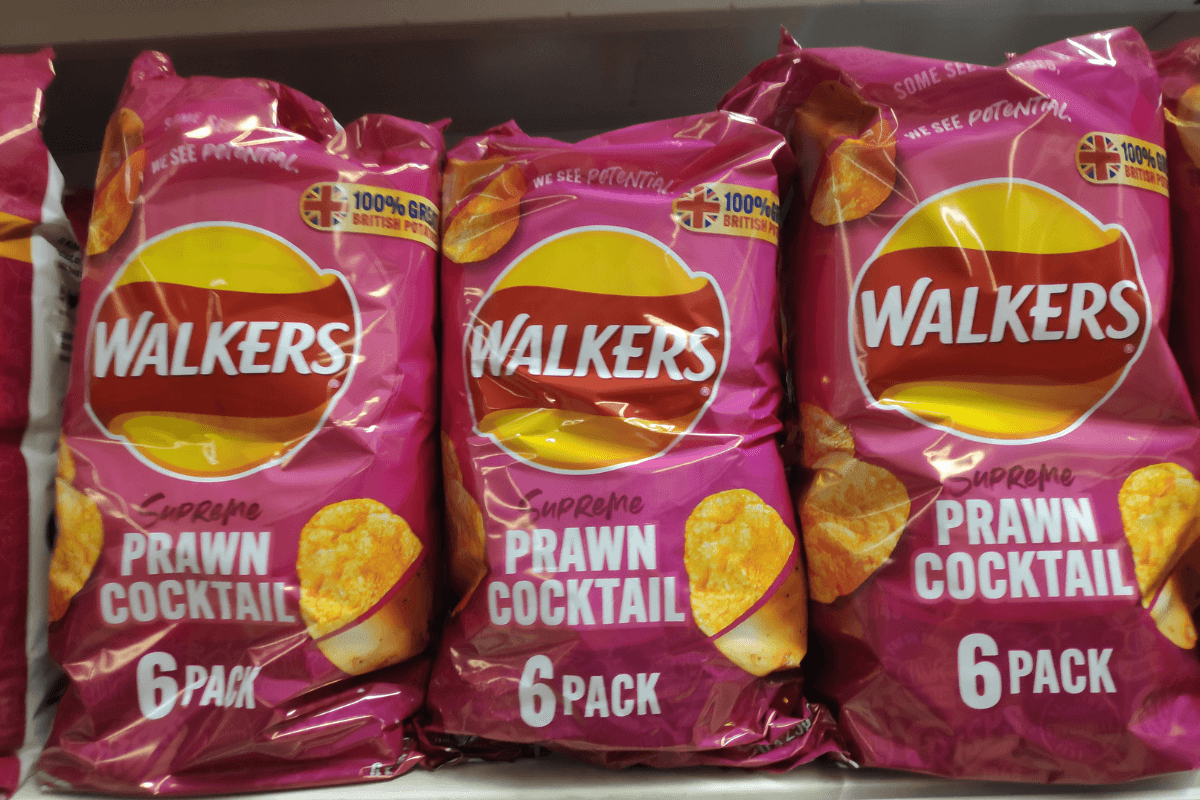If you’ve ever chatted with a Brit and found yourself completely lost, you’re not alone.
British English is packed with words that seem familiar but mean something entirely different, or don’t even exist at all in American vocabulary.
From everyday items to quirky expressions, these terms often leave Americans raising an eyebrow.
Here are 20 British words that regularly cause confusion across the pond.
Lorry

In the UK, a “lorry” is what Americans would simply call a truck.
It refers to large, heavy-duty vehicles designed for carrying cargo over long distances.
While the term is used daily in Britain, many Americans may only encounter it in British TV shows, leading to confusion.
The word has been a staple of British English since the early 20th century and remains in widespread use today.
Examples in sentences:
- “The supermarket gets its deliveries by lorry every morning.”
- “He drives a lorry across the UK for a living.”
- “A massive lorry blocked the road for nearly an hour.”
- “We had to hire a lorry to move all the furniture.”
- “You’ll see plenty of lorries on the motorway during the week.”
Biscuit

In British English, the word “biscuit” refers to a sweet, crunchy baked good, often enjoyed with a cup of tea.
This can be confusing for Americans, where a “biscuit” typically means a soft, fluffy bread roll served with gravy.
The British biscuit ranges from chocolate-dipped treats to plain digestives, and the word has deep roots in UK food culture.
It’s a common source of mix-ups in cross-Atlantic kitchens.
Examples in sentences:
- “Would you like a biscuit with your tea?”
- “He offered her a chocolate biscuit from the tin.”
- “Digestive biscuits are surprisingly good with cheese.”
- “She packed some biscuits for the afternoon break.”
- “Don’t dunk that biscuit too long or it’ll fall apart.”
Boot

In the UK, the word “boot” refers to the storage compartment at the back of a car.
This is what Americans would call the trunk.
This everyday term can easily lead to confusion during conversations about vehicles or travel.
The origin of “boot” in this context likely comes from old carriage terminology, where the “boot” was a built-in storage area.
It’s still widely used across Britain and other Commonwealth countries.
Examples in sentences:
- “Put the groceries in the boot, would you?”
- “The boot was full of camping gear.”
- “I couldn’t find the spare tyre—it was hidden under the boot floor.”
- “He slammed the boot shut and got in the car.”
- “She opened the boot to get her suitcase out.”
Chips

In British English, “chips” refer to thick-cut, fried potato sticks—what Americans would call French fries.
This can cause immediate confusion at restaurants or fast food chains, especially when expecting a bag of crisps (the UK word for what Americans call chips).
A classic example is “fish and chips,” one of the most iconic British dishes.
The term is so embedded in UK culture that even menus make the distinction.
Examples in sentences:
- “I’ll have fish and chips, please.”
- “These chips are perfectly crispy on the outside.”
- “She smothered her chips in vinegar.”
- “We stopped at a chip shop on the way home.”
- “Do you want ketchup or mayo with your chips?”
Pants

While Americans typically use “pants” to mean outer trousers, in the UK it primarily refers to underwear.
Additionally, “pants” is commonly used as slang to describe something that is disappointing, of poor quality, or simply rubbish.
This double meaning can easily confuse Americans when Brits say something “is pants,” as it doesn’t relate to clothing at all.
The term has been part of British slang since the mid-20th century.
Examples in sentences:
- “He forgot to pack his pants for the trip.”
- “These shoes are pants—they fell apart after a week.”
- “She bought new pants for the party.”
- “The movie was pants; I wouldn’t recommend it.”
- “Don’t be pants at the quiz tonight!”
Rubbish

In the UK, “rubbish” is commonly used to describe waste material or garbage, similar to the American term “trash.”
However, it’s also frequently used to dismiss ideas, statements, or things as nonsense or worthless.
This dual usage can lead to misunderstandings when Americans hear Brits saying something is “rubbish.”
The word has been a staple of British English for centuries and remains widely used in everyday conversation.
Examples in sentences:
- “Put the rubbish out before the bin men arrive.”
- “That film was absolute rubbish.”
- “Don’t listen to him; he’s talking rubbish.”
- “The kitchen bin is full of rubbish.”
- “She threw the old papers in the rubbish.”
Fortnight

The word “fortnight” is commonly used in the UK to describe a span of fourteen days or two weeks.
This term is rarely used in American English, where people typically say “two weeks” instead.
The origin comes from the Old English phrase “fourteen nights,” which was shortened over time.
Despite sounding old-fashioned, “fortnight” remains very much in everyday use across Britain.
Examples in sentences:
- “I’m going on holiday for a fortnight.”
- “The project deadline is in a fortnight.”
- “We haven’t seen each other in a fortnight.”
- “She stayed with her grandparents for a fortnight.”
- “The rent is due every fortnight.”
Gobsmacked

“Gobsmacked” is a colorful British expression used to describe being utterly shocked or amazed by something unexpected.
The word combines “gob,” a slang term for mouth, with “smacked,” implying being hit so hard it leaves you speechless.
While it’s widely understood in the UK and parts of the Commonwealth, many Americans might find the term amusing or confusing since it isn’t commonly used in the US.
Examples in sentences:
- “I was gobsmacked when I heard the news.”
- “She was absolutely gobsmacked by the surprise party.”
- “They were gobsmacked at how much the house had changed.”
- “He looked gobsmacked after seeing his exam results.”
- “We were gobsmacked by the incredible view.”
Quid

“Quid” is a very common slang term used throughout the UK to refer to one British pound.
It’s similar to how Americans use “buck” for a dollar.
The origin of the word isn’t certain but dates back several centuries.
Quid is used in both formal and informal settings and is a staple of everyday British conversation about money.
Examples in sentences:
- “That book cost me ten quid.”
- “He earns about 500 quid a week.”
- “Can you lend me a couple of quid?”
- “The tickets were fifty quid each.”
- “I saved a hundred quid on that deal.”
Nappy

In the UK, “nappy” is the standard word for what Americans call a diaper. It’s short for “napkin,” and has been used in British English for decades to describe absorbent cloth or disposable babywear. The term is still commonly used in parenting, retail, and everyday conversation, but can throw off American readers or shoppers unfamiliar with the word.
Examples in sentences:
- “Don’t forget to pack extra nappies for the trip.”
- “She changed the baby’s nappy in the restroom.”
- “We ran out of nappies this morning.”
- “The supermarket has a sale on nappies this week.”
- “He learned how to change a nappy for the first time.”
Torch

In the UK, the word “torch” refers to a portable handheld light source powered by batteries, what Americans call a flashlight.
This can cause confusion for those unfamiliar with British terms, as “torch” in the US typically means a flaming stick or a source of fire.
The British usage of “torch” dates back to the early 20th century and is common in everyday conversation and outdoor activities.
Examples in sentences:
- “Don’t forget to bring a torch for the camping trip.”
- “The power went out, so we used a torch to find our way.”
- “He shone his torch into the dark corner.”
- “Make sure the torch has fresh batteries.”
- “She used a torch to read the map at night.”
Jumper

In the UK, the term “jumper” refers to a knitted garment worn over the upper body, commonly called a sweater or pullover in American English.
This difference can cause confusion, especially when shopping or discussing clothing.
The word “jumper” has been used in British English for decades and remains the standard term for this type of clothing across the UK.
Examples in sentences:
- “She wore a woollen jumper on the chilly day.”
- “I need to buy a new jumper for winter.”
- “His jumper has a hole in the sleeve.”
- “Don’t forget your jumper; it’s cold outside.”
- “He prefers wearing jumpers to jackets.”
Trainers

In the UK, “trainers” refer to what Americans call sneakers or athletic shoes.
The term is widely used in casual conversation and retail to describe footwear designed for sports or everyday comfort.
This difference in terminology can lead to confusion when British people talk about trainers while Americans might think of training activities instead.
The word “trainer” has been standard in British English for many decades.
Examples in sentences:
- “I bought new trainers for the gym.”
- “She always wears her trainers when going for a run.”
- “His trainers are covered in mud after the hike.”
- “You should get some comfortable trainers for school.”
- “The kids were all wearing colourful trainers.”
Holiday

In the UK, the word “holiday” is commonly used to describe a period of leisure or travel away from work or school, equivalent to the American term “vacation.”
This difference often causes confusion for Americans who think of holidays as specific festive days rather than extended breaks.
The British usage of “holiday” applies to both short trips and longer vacations, and it is a fundamental part of everyday conversation.
Examples in sentences:
- “We’re going on holiday to Spain next month.”
- “School holidays start in two weeks.”
- “She took a holiday from work to relax.”
- “The family spent their holiday at the beach.”
- “He booked a holiday during the Christmas season.”
Trousers

In the UK, “trousers” refers to the outer garments worn from the waist down to cover the legs, which Americans typically call pants or slacks.
This term is standard in British English and appears in both formal and informal contexts.
The distinction is important because, in British English, “pants” usually means underwear, so “trousers” avoids confusion.
Examples in sentences:
- “He wore a smart pair of trousers to the interview.”
- “Her trousers were too long and needed hemming.”
- “I bought new trousers for the wedding.”
- “The school uniform includes grey trousers.”
- “He rolled up his trousers on the hot day.”
Crisps

In the UK, “crisps” are thinly sliced, fried or baked potato snacks, known as potato chips in the US.
This difference in terminology often leads to amusing misunderstandings, especially when ordering snacks or reading packaging.
Crisps come in a variety of flavors and are a popular snack food throughout Britain.
The word “crisps” has been used in British English since the early 20th century.
Examples in sentences:
- “She bought a bag of crisps for the party.”
- “These crisps are salt and vinegar flavored.”
- “He always packs crisps in his lunchbox.”
- “Would you like some crisps with your sandwich?”
- “The kids love sharing crisps after school.”
Mate

“Mate” is a very common British term used to address or refer to a friend, similar to “buddy” or “pal” in American English.
It’s often used casually in conversation, and can convey warmth or camaraderie.
The word is deeply ingrained in British culture and is sometimes used between strangers in informal settings.
While Americans understand it, it’s less frequently used in everyday US speech.
Examples in sentences:
- “Alright, mate? How’s it going?”
- “I’m meeting my mates for a pint tonight.”
- “Thanks, mate, I really appreciate it.”
- “He’s a good mate of mine.”
- “Come on, mate, let’s get started.”
Bugger

“Bugger” is a widely used British slang term with several meanings depending on context.
It can express frustration, surprise, or affection, often softened when used playfully among friends.
While its original meaning is more vulgar, in everyday speech it’s commonly used as a mild curse or term of endearment.
Because of its varied use, it can be confusing or surprising to Americans unfamiliar with British slang.
Examples in sentences:
- “Oh bugger, I forgot my keys.”
- “You little bugger, you tricked me!”
- “Bugger off! I’m trying to work.”
- “He’s a cheeky bugger but a good bloke.”
- “Bugger me, that was unexpected.”
Knackered

“Knackered” is a commonly used British slang term to describe being completely worn out or very tired.
It’s often used informally after a long day or strenuous activity.
The word originates from “knacker,” meaning to tire out or exhaust.
While Americans understand the meaning, the term is much more prevalent and natural in British everyday speech.
Examples in sentences:
- “I’m absolutely knackered after that run.”
- “She felt knackered following the late-night shift.”
- “We were knackered by the time we got home.”
- “He looked knackered after the long journey.”
- “They were knackered but happy after the concert.”
Fancy

In the UK, “fancy” is often used to express romantic or physical attraction toward someone, as in “I fancy her.”
This usage can confuse Americans, who usually use “fancy” to describe something elaborate or high-end.
The British sense of “fancy” has been part of informal speech for many years and is commonly heard in everyday conversations about relationships.
Examples in sentences:
- “Do you fancy going out for dinner tonight?”
- “He really fancies that new girl at work.”
- “I don’t fancy the idea of going out in the rain.”
- “She fancies him but hasn’t told anyone yet.”
- “Fancy a cup of tea?”


